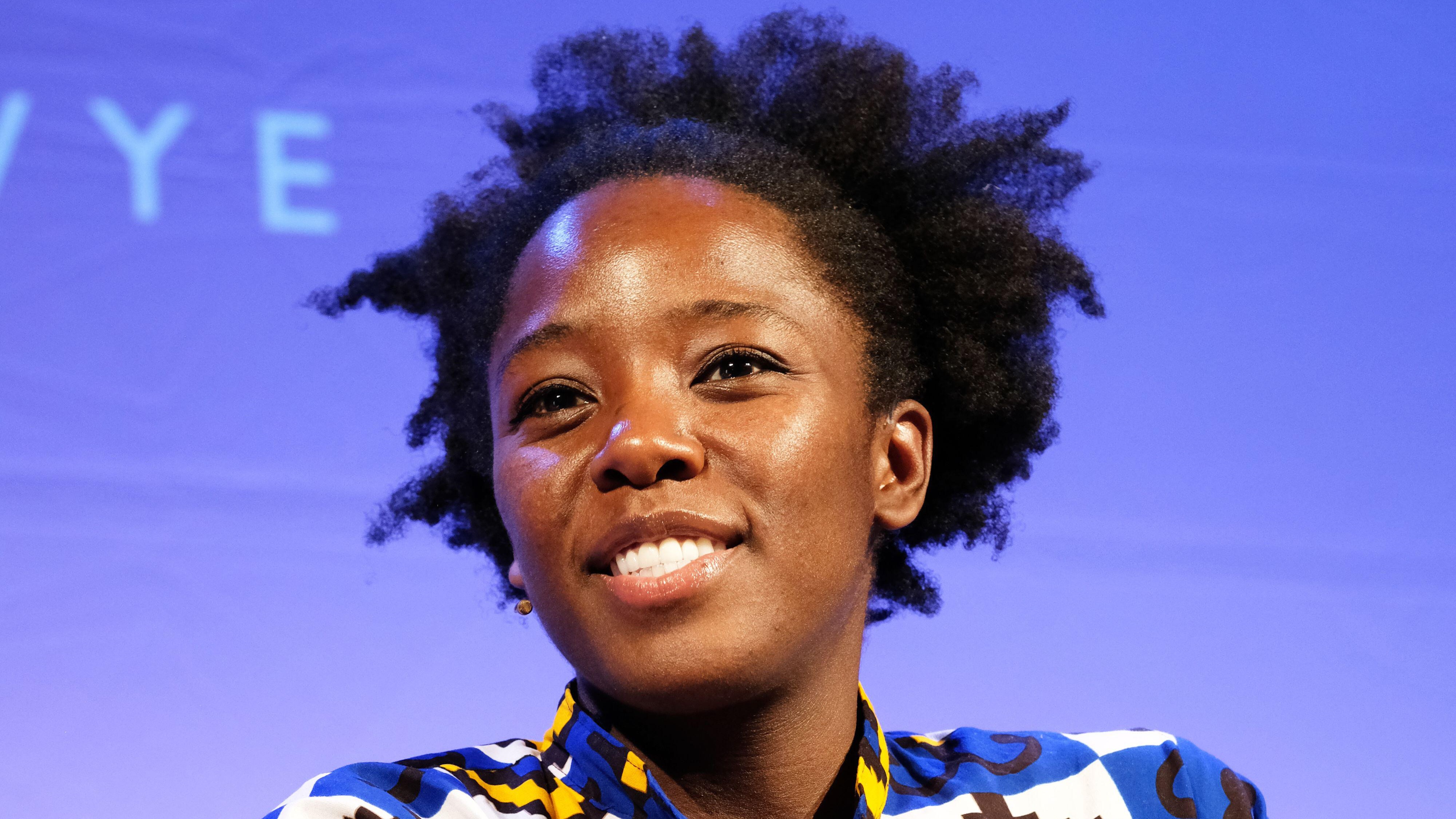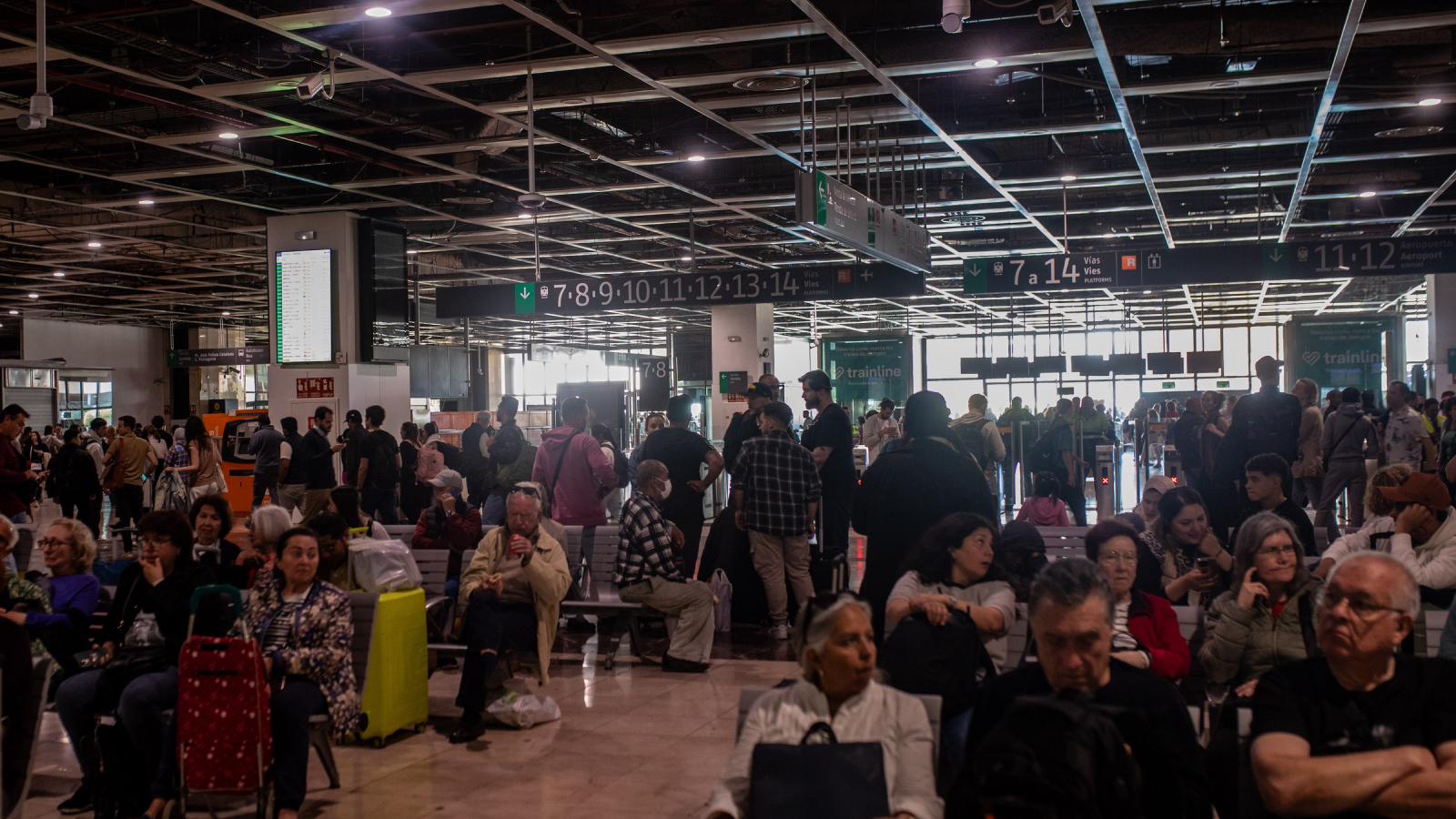'When you improve nutrition, you reduce violence': Psychologist Kimberley Wilson on working in Europe's largest women's prison
Kimberley Wilson has worked in prisons and with patients from all walks of life. Her years of providing therapy suggest improved nutrition could be key to mental health and brain function.

British psychologist Kimberley Wilson has worked with people from all backgrounds following her years working as a therapist at London's Holloway Prison, which was Europe's largest women's prison at the time. But those formative years shaped the advice Wilson gives her clients and patients to this day.
During her time at Holloway, Wilson learned about surprising links between diet, mental health and behavior in the population she worked with. Those early findings were so promising they inspired the work Wilson has done over the past decade, as well as her two books: "How to Build a Healthy Brain" (Yellow Kite, 2020) and "Unprocessed: How the Food We Eat is Fueling our Mental Health Crisis" (Ebury Publishing, 2023).
In an interview with Live Science, Wilson described her journey from those early years to her current practice, emphasizing the links between mental health and nutrition.
Sascha Pare: You became interested in nutrition after training as a psychologist — how did food first pop up on your radar?
Related: How long does it take to digest food?
Kimberley Wilson: My first proper job when I qualified was in a prison working for a charity developing and offering therapy to prisoners. The thing about women at that time [between 2008 and 2013] — and I'm going to assume it's still the same — is that, although they only made up about 6% of the overall U.K. prison population, they accounted at the time for about 50% of the self-harm that was occurring across the entire U.K. prison estate. [Recent figures show that in 2022, women prisoners accounted for 29% of self-harm incidents while making up only 4% of the U.K. prison population. And between 2022 and 2023, rates of self-harm increased by 43% in female establishments.]
It was around that time that this replication [in the Netherlands] of a [2002 U.K.] study came out. They had taken a cohort of violent male prisoners and improved their nutritional status through supplementation [capsules containing vitamins, minerals and fatty acids]. They found that objective incidence of violence — and I say objective, so not like "How are you feeling? Do you want to punch anyone today?" but actually going through the log book at the end of the wing and counting how many infractions had happened — were 30% lower in the supplemented group compared to the placebo group.
Sign up for the Live Science daily newsletter now
Get the world’s most fascinating discoveries delivered straight to your inbox.
That was just extraordinary to me. I was already working in prison, I was already thinking about safety and harm — and here was this good quality, gold standard research demonstrating that a safe, accessible, low-risk, low-cost intervention could meaningfully improve not just the wellbeing of the prisoners, but also the staff.

SP: That sounds very promising. How did this new information sit with how you were trained as a psychologist?
KW: This raised really interesting questions as a psychologist as to actually how much of my patients' behavior is within their grasp and how much is it being influenced by things that they are completely unaware of. I just found it a fascinating area and also one that was really relevant to the work I was trying to do.
SP: And how was the new information received by your peers and colleagues? Did you implement any nutritional changes during your time working at the prison?
Related: Why do we crave comfort food?
KW: I tried to speak to the governor [warden] and head of health care to tell them about this and to see if we could do a small trial, or if we could take our riskiest women and offer them a supplement. But I got no response whatsoever: it was just crickets. It's really interesting how unwilling people are to engage with that question. Since then, we have had two more replications of that data, so we've got four now — in the U.S., U.K., the Netherlands and Singapore — showing the same thing: When you improve nutrition, you reduce violence.
SP: So, you were convinced by the data that was coming out, even if some of your colleagues weren't. Fast forward a few years: You left your forensic work at the prison and opened a private practice in central London. How did you begin to integrate nutrition into your therapy work?
KW: I did my master's in nutrition and looked specifically at the role of nutrition in brain health, so I was looking specifically at brain health and neurodegeneration, and then within that I was thinking about how — broadly — a healthy brain improves mental health outcomes. That's when I started to think about nutrition with my clients and patients.
SP: Do you think that interest in the kind of work you do — more holistic therapy that integrates lifestyle factors — has increased in recent years?
KW: There's certainly been more conversations about it, and that's also come with more skepticism, which I think is important, but I think there is a much broader appreciation certainly on social media. Could the brain be associated with the body in some way, and could the quality and status of your nutrition be playing a role in your neurological or psychological symptoms? I think those are really important questions — that reintegration of the brain into the body is absolutely crucial, I think, for the future of mental health treatment and research.

SP: The gut-brain axis immediately comes to mind here, but is there any more recent research demonstrating links between nutrition and brain health?
KW: When we look at maternal diet and brain health outcomes in offspring, yes, there's a very clear association. For example, we know without any hesitation that iodine insufficiency is the leading cause of preventable brain damage in the world and leads to permanently suppressed IQ. Similarly, we know that the higher the maternal intake of omega-3, the larger the baby's overall brain volume and connectivity. [These studies are small, observational and were not designed to show that higher omega-3 intake caused higher brain volume.]
In terms of broader dietary intakes, that data is kind of coming in now. First of all, a diet that's high in ultra-processed foods (UPFs) is lower in nutrients. We see that across the world, and the issue for the brain with that relationship is that the brain is the hungriest organ in the body. It has a huge nutrient demand and so the concern is, if we have a population of both adults and children that have a high proportional intake of UPF, are their brains getting what they need to function well? The likelihood is no.
People who have higher UPF [intake] have increased incidence of depression and anxiety, and increased risk of depression and common mental health conditions later on. They also have faster cognitive decline and greater overall dementia risk.
[High UPF intake is tied to other major factors that impact people's health — for example, people with low incomes who face food insecurity and receive government food benefits often consume more processed foods, and they are thus facing additional stressors beyond the foods they eat.]
SP: How do you pass that information on to your clients and patients?
KW: I just try to present the evidence: "The evidence suggests to us that just getting a few more fruits and vegetables into your diet will help you feel a little bit better. Is this something you'd be willing to try?" [Studies showing the impacts of fruit and vegetable intake on mood are largely observational.]
For some people nutrition might be a significant influence on how they're feeling, but for other people it's really not, and so you can just give it a bash for a while and see.
SP: You also do a lot of science communication work on your social media platforms. Do you communicate differently online, maybe in a way that's more prescriptive? (I must confess I've had a stalk of your Instagram.)
KW: The ironic thing about social media is that people are looking for you to tell them what to do, whereas I'm just kind of like: "Here's some information, do with it what you like." I think it's important for people to have that information, but it's not a command.
Kimberley Wilson will be co-hosting a talk called "Gut Feelings" at this year's Cheltenham Science Festival, which will run from June 4 to 9.
This interview has been edited and condensed for clarity.

Sascha is a U.K.-based staff writer at Live Science. She holds a bachelor’s degree in biology from the University of Southampton in England and a master’s degree in science communication from Imperial College London. Her work has appeared in The Guardian and the health website Zoe. Besides writing, she enjoys playing tennis, bread-making and browsing second-hand shops for hidden gems.









